Soundboard
The Steinway & Sons Podcast
Davell Crawford
Pianist, singer, and Steinway Artist Davell Crawford follows in the great New Orleans piano tradition passed down from his grandfather, James “Sugar Boy” Crawford. Davell attended Catholic and Baptist churches and got his start early as a young boy in the gospel community. Crawford’s music dips into a gumbo of jazz, gospel, funk and R‘n’B, affecting across his pianism, singing and songwriting.
[Below is an edited transcript of the podcast:]
We’re at Steinway Hall in New York City. So the last time you were here, I gave you a more Steve Harvey–esque introduction than I would have thought.
Oh wow.
Did you listen?
No, I was backstage. What happened?
I really got worked up and I started stringing all your titles together, and people got louder and louder and more excited —
Was I late?
No, no! But by the time we brought you on, everyone was raring to go. And I think I forgot what it’s like where when you have a ‘family concert’ — where people are supportive of you already and you can do no wrong, in a good way. And addressing that crowd, I said ‘Good evening,’ and everybody was like ‘GOOD EVENIN’!’ and I thought, ‘Okay, it’s church.’
[Laughs.]
And I had forgotten about that, because I grew up in east Tennessee but I’ve spent seventeen years in New York and you forget. And it made me think of New Orleans, when I go down there and I go to D.B.A. or The Red Cat and it’s locals watching locals —
Oh yeah.
‘When you do something wrong, and you’re part of the tribe, the whole community, that whole tribe corrects you — with love. And when you do something right, that whole tribe takes you in and celebrates you with nothing but love.’
There’s this cloud of support there that embraces you and, as a performer, I would imagine lifts you up.
Listen: New Orleans is the perfect breeding ground for musicians, because we are a very tribal community of people. We eat, breathe, sleep and love and live as a tribe. We depend upon each other. And when you do something wrong, and you’re part of the tribe, the whole community, that whole tribe corrects you — with love. And when you do something right, that whole tribe takes you in and celebrates you with nothing but love, and what a wonderful way to be raised, to be nurtured! New Orleans does that better than any other place in the world. I’ve traveled as a musician, and I think that New Orleans — and Louisiana as a whole, right? — gets that. And we have several other American pockets that get it: Nashville gets it, Austin gets it, San Francisco gets it. And as much as I love New York, and I live here, New York used to get it. And it’s getting back to that. I see it. I go out to Harlem and over in Brooklyn, little pockets, they’re starting to get it, it’s a different generation.
Why did New York lose its way for a time?
Several reasons. I’ve been here eleven years and I should write about this. I think the masters and the guys that took you in and loved you — as Lionel Hampton loved me from the time I was a little child up to his passing — they’ve gone; they’ve left. They were raised with tough love, and once they left us, we had a generation that really did not school the generation that came after them.
Was that because they were doing for themselves, a self-focus?
I believe so. I also believe there were so many great musicians, young cats that came up at one point, and every man for themselves. And New York presents you with that: every man, almost, is for himself here. I think they failed — the ones that helped and could have helped — they failed the younger community of musicians as far as showing them how to be musicians, how to be grateful and thankful and how to teach. And New York, as a whole, turned into a college town.
And we see the expansion, still, of NYU and Columbia.
Oh yeah! You can come here and learn how to pot plants: you can get a degree in anything! This is a good thing, but what it does to the music community and the larger arts community — you need a community of working professionals and also a community of students, studying the professionals. When the community does not hire and keep the professionals, the students that are coming here from all over the world to be inspired and to learn, they have no inspiration. They have no one to see, no one to watch. There are household names here in New York that will sell out any place they play but they have not worked in New York for a very long time. So the students here are now the professionals — as they are the students — and that’s not inspiring at all, at least not to me.
You can’t be the student and the master simultaneously.
You cannot be the student and the master. You can be the student and the professional. New Orleans trains you to be that.
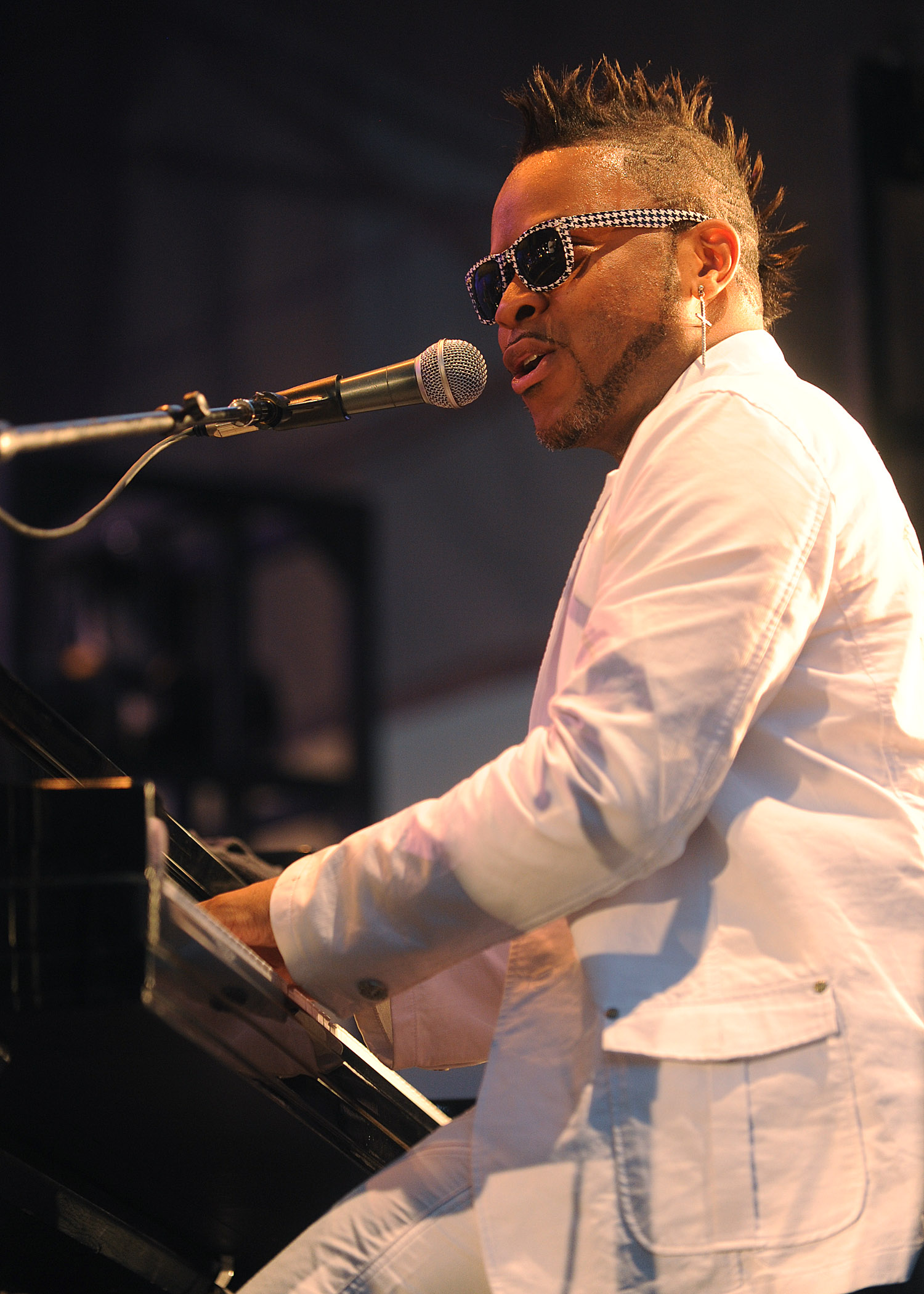
How is that?
It’s a generational thing. It’s the way we do things and the way they have always been done. We’ve not strayed away from learning on the gig. I was thirteen hiring guys in their forties and fifties for my gig, telling them what to do, and them telling me what to do, right? That’s the best way to learn. We get that. Hopefully, with what I’m seeing in Harlem and other pockets of New York, this will happen here soon on a broader scale.
For those unfamiliar with the city, New Orleans jazz can often be pigeonholed as a certain old-tyme sound, frozen in time. We think of Preservation Hall Jazz Band, which is a period band, but I think many believe that that’s the New Orleans Sound, unaware of the rich musical diaspora that is there.
You are correct. And if they realize it, they don’t give it the credit that they should until they have to. When you think about New Orleans jazz, you also have to think about gospel. Mahalia Jackson, the most famous gospel singer in the world, came from New Orleans. She was the first person to bring gospel abroad overseas. And of course, Louis Armstrong. But you think about Jelly Roll [Morton], Toots Washington. And you can move on to early R‘n’B, people like my grandfather, James Crawford, they called him ‘Sugar Boy.’ Fats Domino. And then there’s funk, with The Meters. And these guys were creating this stuff at the same time. Dr. John, with the Bayou stuff and the Indian chants! This was created, made up, they put it all in the gumbo down there. People like Earl Palmer, a lot of sidemen, moved out of town and recorded for various labels — Motown and Stax — and brought whatever ingredient they had from Louisiana to various places.
Now we can’t take credit for everything! As long as I’ve lived in Louisiana, the Delta blues, right next door, is a whole different thing. And we can play the blues, but when it comes to the Delta blues, that is something that you have to cross the border in order to understand and to learn. We give that its total respect. Tex–Mex, all of that, right across the border in Texas, we give that its respect. But as far as zydeco, fais do-do, Indian music, Mardi Gras, New Orleans R‘n’B — which is the start of R‘n’B, period, funk, traditional jazz, and a lot of modern jazz, you’ve got to give these guys the respect for creating it and carrying it forth and bringing it to the world.
Where does your musical identity fit into that gumbo?
I assume at this age — I’m still pretty young — I’m the nephew of all these personalities. I was raised around all of it. I caught the end of Ernie Kato, Barbara George, Allen Toussaint, Dr. John. I grew up around those people.
‘I realized that I have a responsibility to preserve the music, to carry it forth and to breathe new life into the music, when it’s appropriate to do that. Yeah, that’s why I’m around.’
Given that heritage, are you now trying to take it somewhere?
I have to. I have to. As far as my instrument, there are only a few of us [pianists]. After the hurricane and considering various what-if-so-and-so-hadn’t-made-it-out scenarios, I realized that I have a responsibility to preserve the music, to carry it forth and to breathe new life into the music, when it’s appropriate to do that. Yeah, that’s why I’m around.
I was listening to your Piano in the The Vaults, Vol. 1 (Basin Street Records), and you get into a groove hearing this music, this pulse on the two and four. To play this music, you really have to have independent hands, like a drummer, and then there’s the singing. It’s a lot that’s coming together: the rhythm of the left, the magic in the right, telling a story with your voice on top of all of that. What do you try to remain conscious of, while all that is happening? What are you looking out for?
I’m not really looking for too much, I can tell you that. I’m looking for a groove and the truth. The truth is already there. And if you listen to the truth and obey the truth the groove will be there. The groove will set you free. So that’s where I live, in the groove. I studied classical music and I still try to study it. I was raised in the Catholic and the Baptist churches and my grandfather was a great piano player so I was born with the groove. So if you put all those things together, that’s what makes my music whatever it is. That’s what makes my left hand. Being from Louisiana, we are known for our left hands, and if you don’t have a strong left hand, go sell shoes. Go do something else. And with the right hand and the melody and all of that, I was raised in the church with Christian music, which I still love to play. We learned the melodies from listening to the trumpet players and we put all that together and that’s your groove.
Last week, you and I were listening to playback to some of what you had recorded for the Steinway & Sons Spirio [a high resolution player piano], and your reaction was ‘Oh, okay, interesting!’ You were surprised by some of your own improvisations.
Certainly!
There’s a level of improvisation that was able to still surprise you, on playback, even though you had originally played it.
Well, I don’t know about that. I’m an artist and I’m an artist at all costs. There are different personalities that live within me, you, lots of other people, most everybody. The most unique artists of our time — music, visual art, anything — they learn how to tap into the other personalities that live within them. Listen, if I was to play everything that Davell, the guy who walked in here a few minutes ago, had to offer, I would have been done a long time ago. But, there’s also Davell, the guy who’s been around forever, since the beginning. There’s also the Davell that wants to play Schubert, that wants to play Chopin. There’s the kid who walked into his grandmother’s beauty parlor with his Tonka trucks and said ‘I’m here to save you all!’ and walked back out. I live in all of that, and I acknowledge all of that.
And from seeing your reaction to the playback, it sounds like it’s not always altogether conscious.
That’s correct. I have to think sometimes how to approach something. For the Steinway Spirio, I thought ‘I’m playing too much this way, so now I should be someone else.’ And I’ll take off my jacket or put it back on or sit a different way. And sometimes my head is almost on the keys. Other times, I’m sitting straight up. Those are two different personalities and two different people. And they have two different levels of ability when it comes to playing, when it comes to how they think, how they process and how they execute what’s going to happen.
The theater of performance.
Yeah! Yeah.... Yeah.
Keep Listening...
-
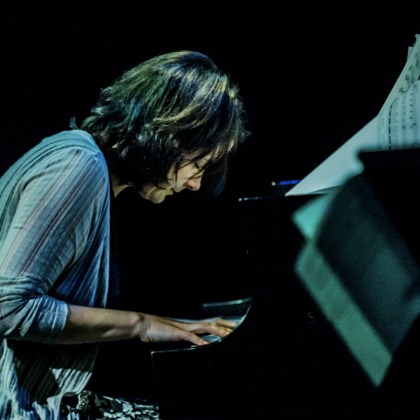
Soundboard — Kris Davis
Jazz pianist and Steinway Artist Kris Davis takes us through her process, her love of Herbie Hancock, and what she gained from listening to other instruments.
Read More -

Soundboard — Yulianna Avdeeva
Chopin International Piano Competition winner and Steinway Artist Yulianna Avdeeva discusses her most recent recording project for Pentatone: Dmitri Shostakovich’s Preludes and Fugues, Op. 87.
Read More -
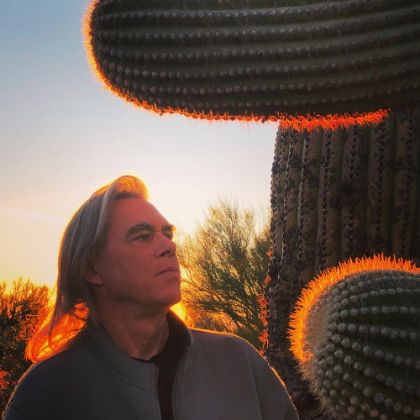
Soundboard — Steve Roach
Ambient and electronic music composer Steve Roach discusses his musical philosophy and process.
Read More -
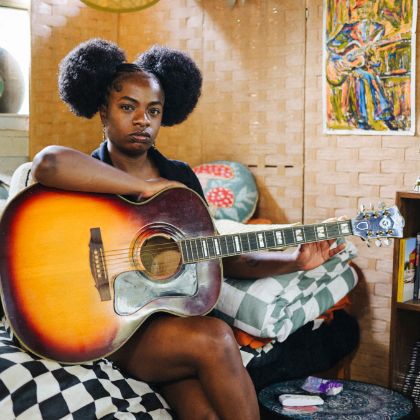
Soundboard — Sunny War
The songwriter Sunny War talks about her eclectic influences, when less is more, her Americana dream, and taking inspiration from her racist neighbors.
Read More -
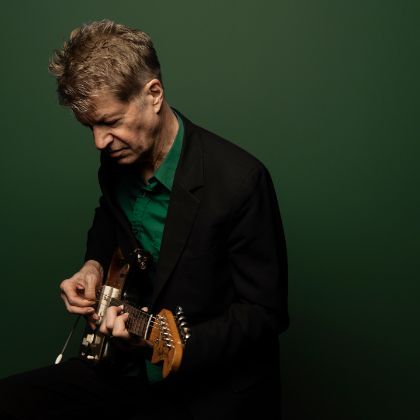
Soundboard — Nels Cline
Guitarist Nels Cline, live from Big Ears Festival, talks about having no fixed voice, Wilco, pretension, and going down with the set list.
Read More -
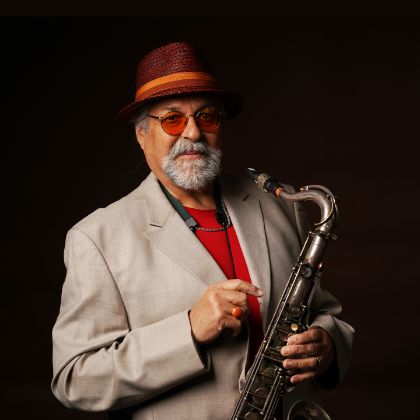
Soundboard — Joe Lovano
Saxophonist Joe Lovano discusses influence, tone, sound, improvisation — and what's in a name.
Read More -
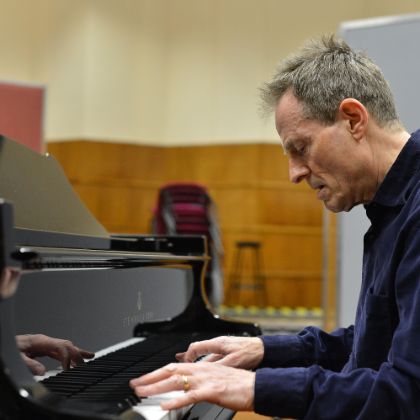
Soundboard — John Paul Jones
Steinway Artist John Paul Jones, live from Big Ears Festival, talks about his influences, his sound, his process and his myriad music projects beyond Led Zeppelin.
Read More -
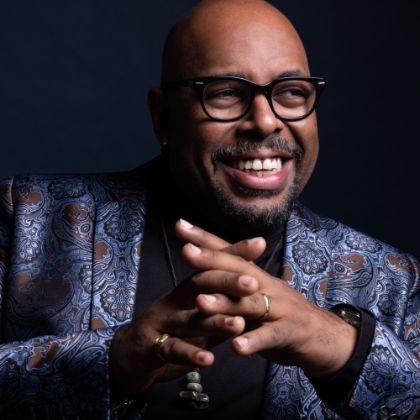
Soundboard — Christian McBride
Jazz bassist Christian McBride, live from Big Ears Festival, talks post-bop, remaining a bass-player-for-hire, bass-on-bass action, preparation, and jazz as democracy. Steinway & Sons is a sponsor of Jazz House Kids.
Read More -
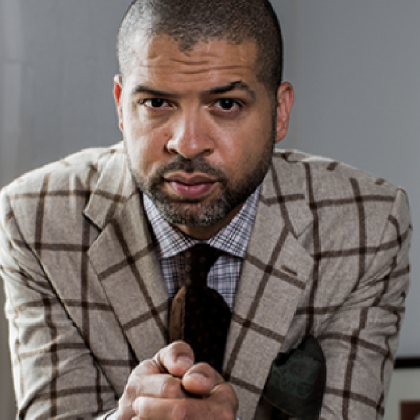
Soundboard — Jason Moran
Jazz pianist and Steinway Artist Jason Moran, live from Big Ears Festival, talks hip hop, the next generation, the algorithm, Monk & Duke, visual art, and creative approach.
Read More -
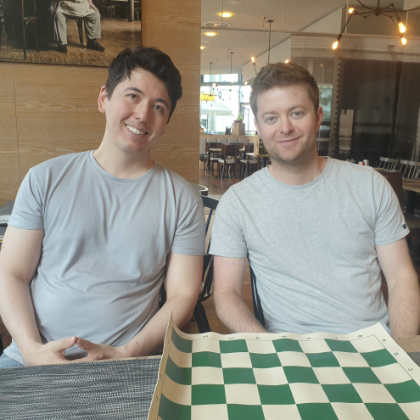
Soundboard — Chessbrah
Eric Hansen and Aman Hambleton, aka Chessbrah, talk techno and chess and what makes Magnus Carlsen the GOAT.
Read More